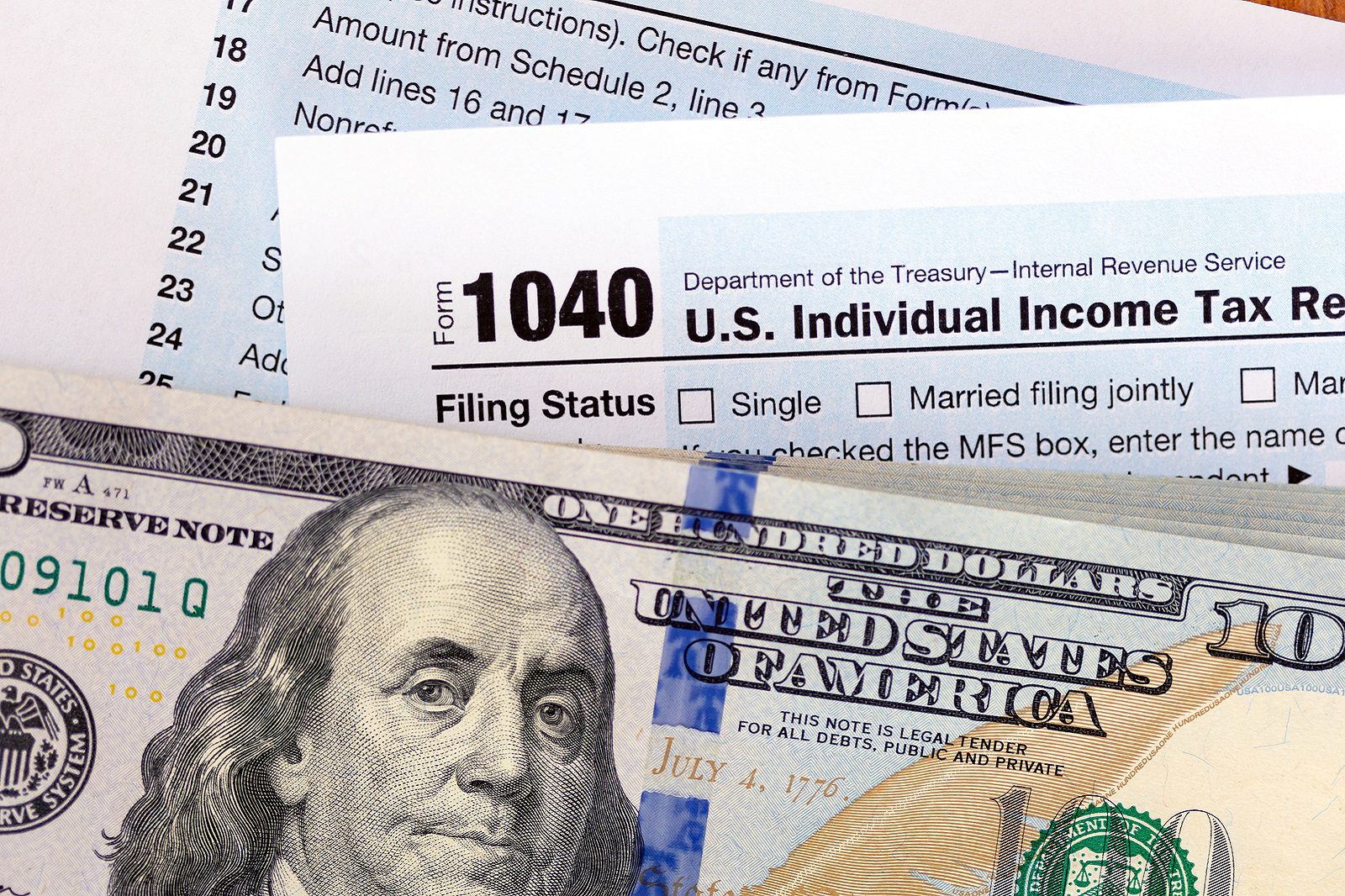Reporting Airbnb income on taxes involves including the rental earnings on your tax return. This income should be reported accurately to avoid any potential issues with the IRS.
Renting out your property on Airbnb can be a lucrative venture, but it’s essential to understand the tax implications. As a host, you are required to report your Airbnb income on your tax return. This includes both the rental income and any related expenses.
Failing to accurately report this income can lead to penalties and interest from the IRS. Understanding the tax rules and seeking professional guidance can help you navigate this process effectively and ensure compliance with the tax laws. In this blog post, we will explore the key aspects of reporting Airbnb income on taxes and provide helpful tips for hosts to manage their tax obligations efficiently.
Contents
- 1 Introduction To Airbnb Income And Taxes
- 2 Determining Your Tax Obligations
- 3 Maximizing Deductions On Airbnb Income
- 4 Record Keeping For Airbnb Hosts
- 5 Special Tax Considerations For Airbnb Hosts
- 6 Filing Taxes As An Airbnb Host
- 7 Leveraging Professional Tax Help
- 8 Common Mistakes To Avoid
- 9 Frequently Asked Questions
- 10 Conclusion
Introduction To Airbnb Income And Taxes
Learn how to navigate reporting Airbnb income on taxes efficiently. Understand the process of documenting earnings for tax purposes.
The Importance Of Reporting Airbnb Income
Reporting Airbnb income is crucial for complying with tax regulations and avoiding potential penalties. By accurately reporting your earnings, you can demonstrate transparency and integrity to tax authorities.
Overview Of Tax Implications For Airbnb Hosts
As an Airbnb host, you need to be aware of the tax implications associated with renting out your property. Understanding the tax laws and regulations can help you manage your finances more effectively and prevent any unexpected tax liabilities.
Determining Your Tax Obligations
As an Airbnb host, it’s essential to understand the tax implications of your rental income. Determining your tax obligations involves identifying the taxable income from your Airbnb activities and understanding how the IRS views Airbnb hosting.
Identifying Taxable Income From Airbnb
Taxable income from Airbnb includes the money you earn from renting out your property or a part of it. This encompasses not only the rental amount but also any additional services or goods you provide to your guests, such as cleaning fees, meals, or transportation.
How The Irs Views Airbnb Hosting
The IRS considers income earned from Airbnb hosting as self-employment income. This means you are responsible for reporting your earnings and paying self-employment taxes on your Airbnb income. It’s crucial to keep accurate records of your rental income and expenses to comply with IRS requirements.
Maximizing Deductions On Airbnb Income
Maximize your deductions on Airbnb income by understanding how to report it on your taxes. Learn strategies to legally reduce your tax liability and make the most of your rental property earnings.
Reporting Airbnb income on taxes can be a bit tricky, but there are ways to make the process smoother. One way is to maximize your deductions. By doing so, you can reduce your taxable income, and ultimately, your tax bill. Here are some common deductible expenses for hosts and ways to understand depreciation benefits.Common Deductible Expenses For Hosts
As an Airbnb host, you can deduct various expenses related to your rental property. These expenses can include:- Mortgage interest and property taxes
- Utilities, such as electricity, gas, and water
- Cleaning and maintenance costs, including supplies and labor
- Insurance premiums, such as liability and homeowners insurance
- Advertising and marketing expenses, including listing fees and professional photography
- Commissions and fees paid to Airbnb or other rental platforms
Understanding Depreciation Benefits
Depreciation is a tax deduction that allows you to recover the cost of your rental property over time. This deduction can be a significant benefit for Airbnb hosts, as it can help offset your rental income and reduce your tax bill.To calculate depreciation, you’ll need to determine the cost basis of your rental property. This includes the purchase price, closing costs, and any improvements you’ve made. You’ll then divide this cost basis by the number of years the property is expected to be in service (27.5 years for residential real estate).For example, if your rental property cost $300,000 and you’ve owned it for three years, your depreciation deduction would be $8,727 per year ($300,000 / 27.5 / 3).In conclusion, by taking advantage of common deductible expenses and understanding depreciation benefits, you can maximize your deductions on Airbnb income and reduce your tax bill. Be sure to keep accurate records and consult with a tax professional if you have any questions or concerns.
Credit: taxedright.com
Record Keeping For Airbnb Hosts
Airbnb hosts are responsible for reporting their rental income on their taxes. Proper record keeping is essential to accurately report income and expenses. Hosts should keep track of all rental income, expenses, and any related receipts or documentation.
Essential Documentation To Maintain
As an Airbnb host, it’s crucial to maintain accurate and detailed records of your income and expenses throughout the year. This documentation will be necessary when it’s time to file your taxes, and it will also help you better understand your financial situation as an Airbnb host. Here are some essential documents to maintain:- Guest receipts: Make sure to keep a record of each guest’s payment, including the dates and amounts.
- Expense receipts: Keep track of all expenses related to your Airbnb business, such as cleaning supplies, repairs, and utilities.
- Travel records: If you travel to maintain your Airbnb property, keep track of your mileage and expenses.
- Tax forms: You’ll need to file a Schedule C form with your tax return to report your Airbnb income and expenses.
Digital Tools For Tracking Expenses And Income
Keeping detailed records of your Airbnb income and expenses can be time-consuming, but there are digital tools available to make the process easier. Here are some digital tools you can use to track your expenses and income:| Tool | Description |
|---|---|
| QuickBooks | A popular accounting software that can help you manage your finances. |
| Expensify | An app that allows you to scan and track receipts and mileage. |
| Airbnb Host Dashboard | An online tool provided by Airbnb that allows you to track your income and expenses. |
Special Tax Considerations For Airbnb Hosts
Airbnb hosts must report their rental income on their taxes. They can also deduct expenses related to their rental property, such as cleaning fees and repairs. Hosts should keep track of their income and expenses to accurately report their taxes and avoid any penalties or fines.
As an Airbnb host, it’s important to understand the special tax considerations that come with earning income from your rental property. Handling occupancy taxes and navigating the shared economy tax center are key aspects that every host should be aware of.Handling Occupancy Taxes
One crucial aspect of reporting Airbnb income on your taxes is dealing with occupancy taxes. Depending on your location, you may be required to collect and remit these taxes to the appropriate authorities. Occupancy taxes are usually imposed on short-term rentals, including those listed on Airbnb. To ensure compliance, it’s essential to research and understand the specific regulations and requirements of your local jurisdiction.The shared economy tax center is a valuable resource for Airbnb hosts when it comes to fulfilling their tax obligations. This platform provides detailed guidance on reporting rental income, deducting eligible expenses, and understanding the tax implications of being an Airbnb host. By using the shared economy tax center, hosts can access relevant forms, instructions, and educational materials to make the tax reporting process smoother.To effectively navigate the shared economy tax center, hosts should keep accurate records of their rental income and expenses. This includes documenting rental agreements, receipts for repairs and maintenance, and any other relevant financial documents. By maintaining organized records, hosts can ensure they accurately report their income and claim eligible deductions, minimizing the risk of an audit or penalties.In conclusion, special tax considerations for Airbnb hosts include handling occupancy taxes and utilizing the shared economy tax center. By staying informed and following the necessary steps, hosts can fulfill their tax obligations and maintain compliance with local tax regulations. Remember to consult with a tax professional or utilize online resources for specific guidance based on your unique situation.

Credit: www.linkedin.com
Filing Taxes As An Airbnb Host
Filing Taxes as an Airbnb Host involves understanding the tax obligations associated with rental income. As an Airbnb host, you are required to report your earnings accurately to the tax authorities.
Choosing The Right Tax Forms
When filing taxes as an Airbnb host, select the appropriate tax forms based on your business structure. For individuals, Form 1040 is commonly used, while Form 1065 is for partnerships, and Form 1120 for corporations.
Deadlines And Penalties To Be Aware Of
It is essential to be mindful of tax deadlines to avoid penalties. The tax filing deadline for individuals is typically April 15th, but it may vary based on specific circumstances. Failure to report Airbnb income can result in fines and legal consequences.
Leveraging Professional Tax Help
Maximize your tax benefits by seeking professional assistance to report your Airbnb income accurately. By leveraging expert tax help, you can navigate the complexities of tax reporting and ensure compliance with regulations, ultimately optimizing your tax savings.
When To Seek A Tax Advisor
Benefits Of Professional Tax Preparation For Hosts
Leveraging Professional Tax Help:Tax rules can be complex; seeking professional advice is wise.When to seek a tax advisor:– Before starting Airbnb hosting – When unsure about tax laws – If facing an audit Benefits of professional tax preparation for hosts:– Maximizing deductions – Avoiding penalties – Ensuring accurate reporting
Credit: www.mashvisor.com
Common Mistakes To Avoid
Avoiding these common mistakes when reporting Airbnb income on taxes can prevent potential issues with the IRS.
Underreporting Income
Failure to accurately report all income can lead to penalties.
Overlooking Eligible Deductions
Missing deductions means overpaying taxes unnecessarily.
Frequently Asked Questions
Does Airbnb Income Get Reported To Irs?
Yes, Airbnb income is reported to the IRS. Hosts are responsible for reporting their rental income.
How Do I Report Airbnb Income On My Tax Return?
To report Airbnb income on your tax return, include it as rental income. Keep records of your earnings, expenses, and any related deductions. Use Schedule E to report the income and any expenses. Remember to consult a tax professional for personalized advice.
How Much Do You Have To Make On Airbnb To File Taxes?
To file taxes on Airbnb earnings, you must report any income earned from the platform. The specific amount depends on your total annual income and filing status. It’s important to consult with a tax professional for accurate advice tailored to your situation.
What Happens If I Don’t Report My Airbnb Income?
Failing to report Airbnb income can result in penalties and fines. It’s important to comply with tax regulations to avoid legal issues.
Conclusion
Reporting your Airbnb income on taxes is a crucial step for hosts. It ensures compliance with tax regulations and avoids any potential penalties or audits. By accurately documenting your earnings and expenses, you can maximize deductions and reduce your tax liability.
Remember to consult with a tax professional to navigate the complexities of tax reporting for Airbnb income. Stay informed, organized, and proactive to maintain a successful and legal Airbnb business.



